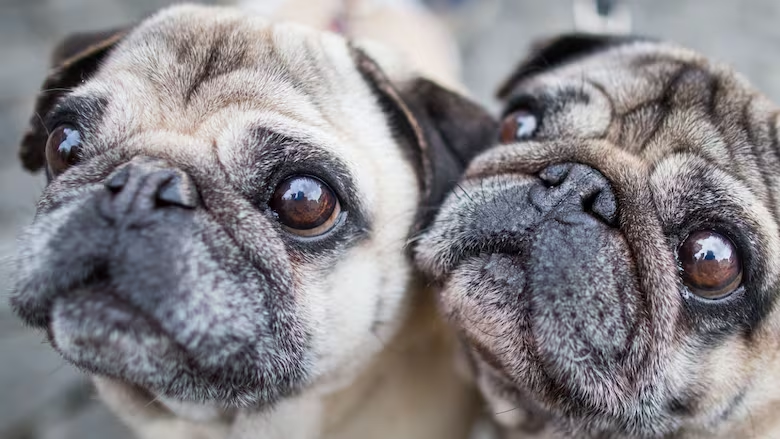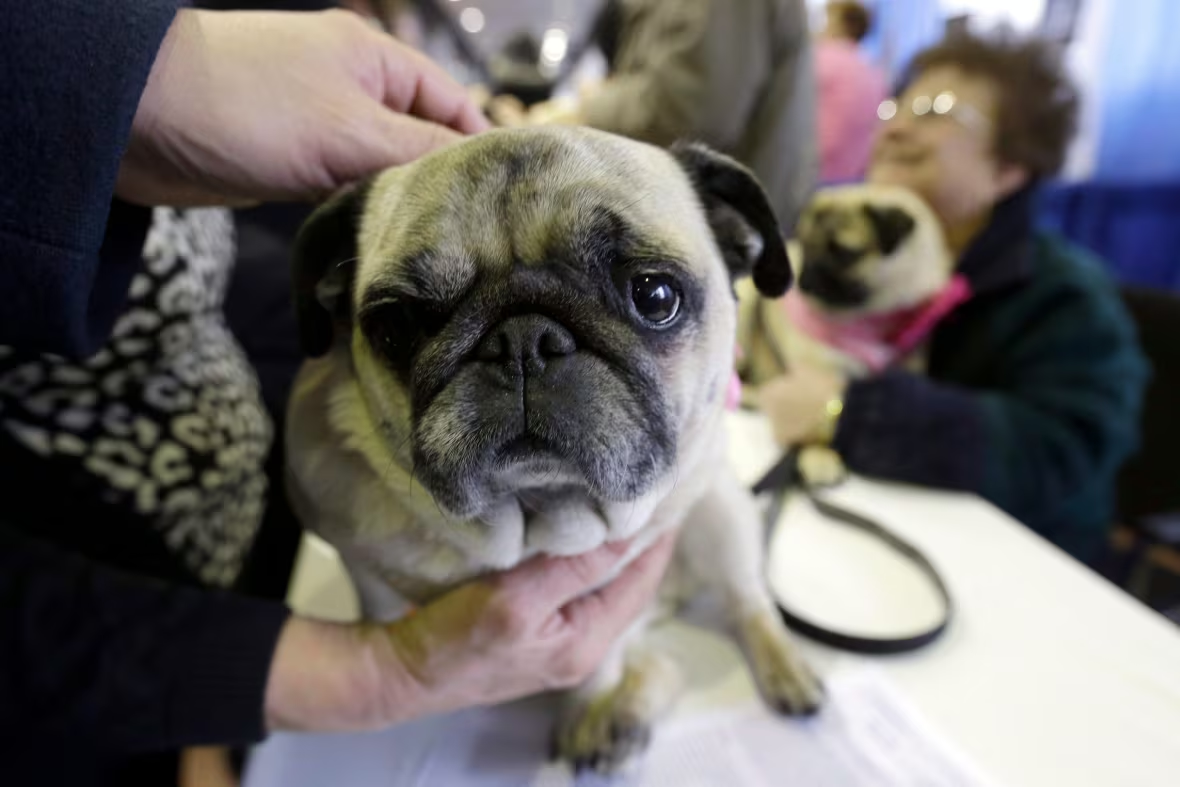'Like breathing through a straw': British vets urge people to stop buying flat-faced dogs


According to the British Veterinary Association so called "flat-faced" dogs are prone to health problems and breeding them just encourages more pain and suffering.

Sean Wensley is the British Veterinary Association's president. He spoke with As It Happens host Carol Off about the problem and the increasing demand for these types of dogs. Here is part of their conversation.

Carol Off: Mr. Wensley, what breeds of dogs are we talking about in this category of what they call "flat-faced" dogs?
Sean Wensley: The breeds that we are particularly concerned about here in the UK are those that have shown a rapid recent increase in popularity and they would include the pug, the French bulldog and the English bulldog. Registrations of those breeds have gone up significantly. What that means for vets working in clinics is that we are having to treat many of the health consequences of these breeds which have flattened faces, particularly some of the breathing difficulties.
We would liken it to us as humans having to spend our entire life breathing through a drinking straw.- Sean Wensley

SW: The main problem is that their normal airway structures have to fit into a much smaller, flattened space. They are essentially squashed into that short nose and shortened skull. What that means is that the airways are twisted and contorted. So when the dog is trying to breathe from the outside into their lungs the air has to pass many obstacles. It's difficult for them to breathe. Anyone who has spent time around these dogs will recognize that they grunt and snort a lot. When they are trying to sleep, and their sleep is often disrupted, they'll snore a lot then as well. That makes it difficult for them to breath. We would liken it to us as humans having to spend our entire life breathing through a drinking straw. You can imagine the impact on our quality of life that that would have.

CO: Now has this always been the case for these breeds or is it a lot of in-breeding or over-breeding that has created the major problems for them?
SW: This is a man-made problem and that's one of the main reasons we are so keen to raise awareness of it. We are deliberately breeding dogs for physical characteristics that we as humans find appealing like a flat-face. But importantly, that means they are preventable problems because if we could breed for healthier shapes instead than we are going to have in turn, healthy, happy dogs that enjoy a good quality of life, which we feel strongly ought to be the case.

SW: As veterinarians we have a duty not only to help individual inflicted animals, but to raise awareness amongst dog owners, prospective dog owners that this is an important cause of animal suffering at a societal level and one importantly that is preventable. We would actually strongly dissuade and discourage prospective dog owners from taking on this breed to help improve animal welfare and I suppose also importantly to avoid some of the veterinary costs that go with treating these conditions.
CO: What happens to these dogs when they do develop these problems?
SW: Many of them come into veterinary practices. Some of the other problems that they're susceptible to are things like regular skin infections because of their folded skin — the folds are moist, humid environments that become infected easily. And we're also doing frequent cesarean sections, particularly on English bulldogs.
CO: Why are they not able to give birth normally?
SW: The relative size of the puppy's head compared to the diameter of the bulldog's pelvic canal is too large to pass naturally. Again, that's simply a consequence of us having deliberately selected them for a certain shape and size.
CO: Is there something pet owners can do to improve their lives?
For more on this story, listen to our full interview with Sean Wensley.

The Canadian Veterinary Medical Association does not have a blanket recommendation against buying flat-faced dogs. But they do oppose selective breeding for physical features that might cause health problems. And they say they are "concerned" about the continuation of certain breeds.
Among them are Doberman pinschers and boxers for their weak hearts; Dachshunds, Corgis and Bassett hounds for their back problems; German Shepherds for their uneven gait; and bulldogs for their wide heads.
If you own a flat-faced dog, we want to hear from you. What do you think of Sean Wensley's suggestion that would-be dog owners should pick other breeds?
Email us at aih@cbc.ca. Our talk-back line is 416-205-5687. Our Facebook and Twitter handle is @CBCAsItHappens.